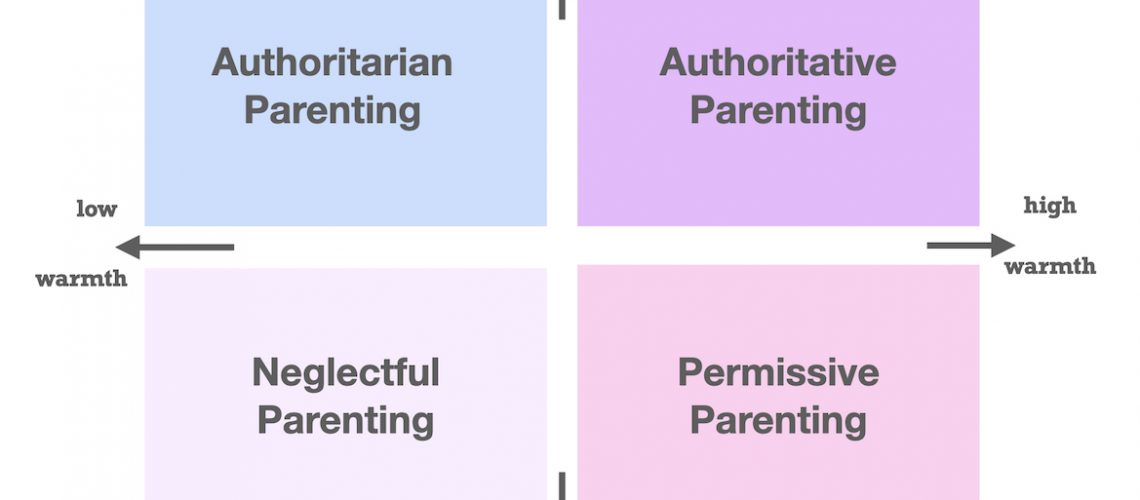

Dr. Sam Himelstein
Co-Founder and CEO, Family Spring, Inc.
Four Parenting Styles, and How They Affect Kids
What does it mean to be authoritarian, permissive, or authoritative? In the 1960s, developmental psychologist Diana Baumrind identified these three styles of parents, based on the level of warmth and level of structure (or “demandingness”) they provide to their children. Later, Eleanor Maccoby and John Martin added a fourth category: uninvolved or neglectful parenting, to describe parents who are low in both warmth and demandingness.
The following is a brief description of each parenting style, followed by a few questions to help you reflect on your own role as a parent.
Neglectful Parenting (low warmth; low structure and “demandingness”)
Neglectful or uninvolved parents are not warm and responsive to their children, and they do not offer much guidance or structure. This may be because they feel indifferent towards their kids, or it may be because they are overwhelmed by other factors in their lives. In either case, they are unable to adequately address the needs of their children.
Authoritarian (low warmth; high structure and “demandingness”)
Authoritarian parents provide strict rules and a structured environment for their children.
They are more focused on compliance and enforcing the rules than on their kids’ social-emotional needs. When they discipline their kids for undesirable behavior, Authoritarian parents are unlikely to explain their reasons or listen to their child’s point of view.
Permissive (high warmth; low structure and “demandingness”)
In contrast to Authoritarian parents, Permissive parents are very warm and responsive to their children but reluctant to set limits and enforce rules. Permissive parents may act more like their child’s peer or friend, rather than an authority figure, and they tend to avoid conflict as much as possible.
Authoritative (high warmth; high structure and “demandingness”)
Authoritative parents combine warmth and limit-setting. They have clear guidelines for their children. At the same time, they empathize with their kids’ feelings, and are willing to listen to their point of view. When they discipline their children, the goal is to guide them to understand the consequences of their behavior.
Authoritative parents are more likely to offer advice and support than the other parenting styles. It’s clear who’s in charge, and it’s also clear that the parents care about their kids. Compared to the other three parenting styles, children of authoritative parents tend to be the best adjusted and most successful.
A note about the research: Diana Baumrind’s study focused on middle class white families. Over the past few decades, there have been several additional studies focusing on different nationalities and ethnicities. This research shows that authoritative parenting styles tend to be the most beneficial for all kids, allowing for some cultural differences in the ways parents and children interact with one another. (The main difference is whether kids have a voice in family decision making.) The common denominator is that the parents don’t just punish their children for misbehavior, they explain the consequences of that behavior and how it affects others.
Conclusion
Like most parents, you probably don’t fall squarely into one category all the time. There may be situations where you lean more towards a permissive, authoritarian, or authoritative style, and other times when you lean more towards a different style.
The following questions will help you become more conscious of your parenting role and whether you’d like to take on a different role with your kids.
- What type of parenting style was I raised with? Do I have a similar or different style from my own parents?
- Which type of parenting style do I feel most/least comfortable with? Why?
- Which type of parenting style do I use most often? Why?
- Would I like to make any changes to my parenting style? How could I start to do this?
For more information about successful parenting, see the following posts:
